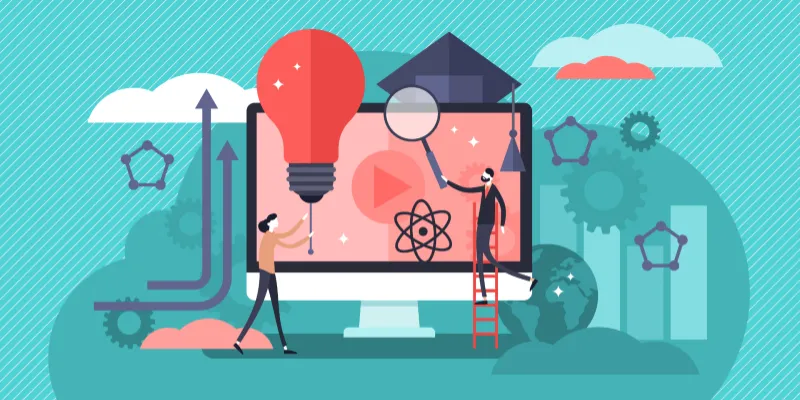[2020 Outlook] From voice search to game-based learning, trends to dominate edtech this year
Technology has shaped new methods of teaching and learning over the last couple of years. The edtech sector in 2020 is only set to get stronger with AI, game-based learning, voice search, and personalised lessons.
Education is no longer restricted to the classrooms. What slowly began as a supplement to ‘normal’ education is now becoming mainstream thanks to newer technologies, increased internet penetration, and digital literacy.
According to the global education market intelligence firm HolonIQ, the edtech market is projected to grow at 11 percent per annum to $341 billion by 2025. The pace is now being set by Asia – particularly China and India – which is experiencing the world's fastest growth in investment in the education sector.
"We estimate that the speed of digitisation in education will overtake healthcare, due primarily to the build-up in capability over the past 10 years, and fueled by explosive growth in artificial intelligence with China, the US, and India taking the lead on innovation," says Maria Spies, HolonIQ Co-Founder and Managing Director.
The Indian edtech market itself is pegged to touch $2 billion by 2021, according to a report by KPMG and Google. At present, the country has a user base of close to 10 million on various edtech platforms.
As 2020 kicks off, YourStory caught up with edtech startup StudyPad (creators of Splash Math) CEO and Co-founder Arpit Jain to identify trends that are likely to dominate the edtech sector in 2020. In its first round of institutional funding, StudyPad raised an undisclosed amount from Accel Partners in 2019.

Image credit: shutterstock
Rise of game-based learning
Education systems across the world have had a ‘cram-for-the-exam’ approach in the past. But this is rapidly changing now, thanks to technology.
“Game-based learning programs keep students engaged longer than traditional teaching methods. Learning through playing is going to be even bigger in 2020 than it was in 2019,” says Arpit.
Personalised lessons
Technology has been in the classroom for a while but on the periphery. However, it is now becoming a centre focus thanks to mobile phones and easy access to the internet.
Edtech companies are also able to personalise lessons for individual learners and allow for greater differentiation in the classroom to suit student needs.
Voice search
Arpit believes voice search will become a bigger tool for education in the new year. About 50 percent of all searches are already voice-based, and it’s only a matter of time before it moves into the education space in a big way.
It will give young learners the ability to interact with devices through touch and voice, which is extremely beneficial to children as they tend to learn best when they are able to utilise both.
Focus on productive screen time for kids
Parents are often concerned about the content their children watch and its effects on their development.
“A lot of the issue with online content is that much of it is passive and passively watching things doesn’t help development,” says Arpit.
In 2020 passive videos are expected to give way to more immersive learning through educational videos.
Artificial Intelligence (AI)
AI will continue to be the focus in 2020 and is expected to grow in the education sector and aid teachers in the classroom.
“Things like automated administrative tasks, grading papers, and keeping a track of student’s progress will all be outsourced to AI while teachers are free to teach,” says Arpit.
According to EZ Education (creators of DoodleMaths), the most significant uses of AI in edtech are in content recommendation, AI-powered teaching assistants such as chat-bots performing specific tasks, and accessibility functions, such as text to speech and voice recognition.
Future-ready skills
The AI buzz also brings with it the fear that soon most jobs may become redundant through automation.
“In such a scenario, more and more people are looking to equip themselves with future-ready skills that are uniquely human such as problem-solving, and critical and creative thinking. This along with STEM (science, technology, engineering, and mathematics) will continue to be the focus in the new year,” says Arpit.
(Edited by Saheli Sen Gupta)


![[2020 Outlook] From voice search to game-based learning, trends to dominate edtech this year](https://images.yourstory.com/cs/2/25e9e0e0605211e984534d4121ad4bb6/edtech-1577815699468.png?mode=crop&crop=faces&ar=2%3A1&format=auto&w=1920&q=75)






